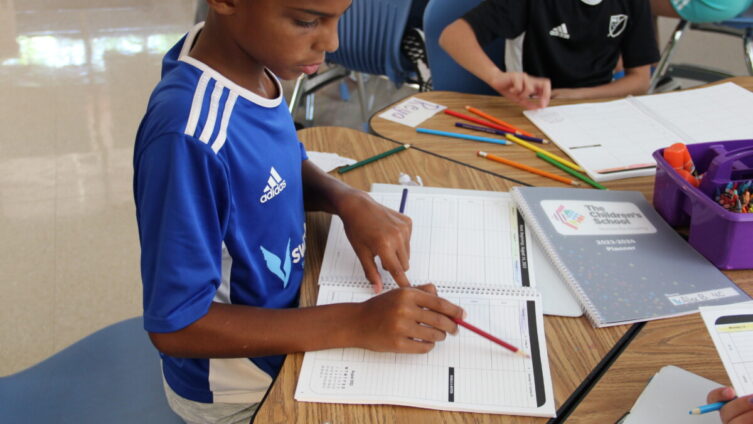
“Why do I have to use a planner if everything is on Google Classroom?”
I’ve been asked this question numerous times by students who are not accustomed to using planners. While assignments are posted online, there are several benefits to using a paper planner. Although technology offers various useful and easily accessible tools and can be a viable option for some, it has limitations. Using a paper planner provides opportunities to develop skills essential for academic achievement and lifelong success.
To start, online assignments are not all on one webpage. I’ve witnessed students switching back and forth on various pages and subject sections to find assignments and directions for these assignments. They sometimes spend more time searching for the tasks than if they were written in a planner. Additionally, online assignments are not custom-made to a student’s schedule. Google Classroom, for example, lists assignments, but how can a student plan what assignments to prioritize and when they will complete these assignments, given their schedules?
As an executive functioning coach, I’m constantly researching ways to develop executive functioning skills that can be used for success beyond a student’s academic career and instead become life skills that lead to future success.
Let’s explore the benefits of using a planner:
- Time Management: A paper planner can help students manage their time more effectively and efficiently. Seeing assignments, projects and extracurricular activities written on a paper planner allows students to see what’s due and coming up. Backwards planning (or backward mapping) is a strategy that requires students to plan and manage assignments to meet due dates by counting backward from the due date. The student determines the critical parts of the assignment and breaks the assignment down into smaller tasks.
- Working Memory: One of the biggest arguments for using a paper planner is that writing things down helps with memory retention and stimulates brain activity. Some students I work with boast that once they write their assignments in a planner, they remember them and don’t have to look at their planners unless they forget specifics. There is also a visual component at work here. TCS Occupational Therapist Sam Chong states, “Writing things down also engages our tactile sense, which enhances working memory.” She adds that writing things down is an underrated and undervalued skill with many other benefits.
- Focus: Balancing screen time for students is a challenge many families face. Using a paper planner gives a little release from screen time and the many distractions that can divert a student’s attention. Sitting down to fixate on a computer screen, students are tempted to click on previously saved tabs, check emails, and browse social media and the internet. It doesn’t stop there. Countless notifications and popups present themselves, inviting students to leave their tasks. These distractions are not present in planners. Instead, the focus is on the assignments and reaching the goals.
- Goal Setting: Adding a goal or to-do list to a planner further encourages goal setting and allows students to see their progress. Studies show that individuals who write down their goals have a greater chance of achieving them. There is a great sense of accomplishment in checking something off a list when it is completed. I regularly encourage students to write down assignments that they have completed and mark them off so they can visibly see their accomplishments.
As students begin a new semester, reminders of the benefits of staying organized and planning are prime goals to promote and strive toward. Using a planner consistently can be a game-changer for students. It provides many benefits and allows students to develop executive functioning skills essential for academic success and beyond.
Establishing a consistent routine around planner use at home and working with your child’s teachers to form a partnership helps keep students accountable. While there are some benefits of using digital planners, the advantages of using a paper planner should be explored and heavily considered as a first step in developing skills that support planning, organization, and other executive functioning skills that promote student achievement. Setting goals and developing routines around using a planner can lead to academic achievement and a toolbox filled with tools for lifelong success.









